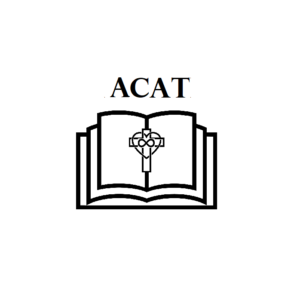|
Getting your Trinity Audio player ready...
|
From the Baltimore Catechism:
How shall we know the things which we are to believe?
We shall know the things which we are to believe from the Catholic Church, through which God speaks to us.
Where shall we find the chief truths which the Catholic Church teaches?
We shall find the chief truths which the Catholic Church teaches in the Apostles’ Creed.
Let us comment, then, on these two questions as we pick up our look at the Catechism once more.
The Baltimore Catechism was ostensibly prepared and published for use by school-aged children being raised in the Catholic faith. However, it is still a valid and informative resource outside that context – for instance, as a starting point for those unfamiliar with, or seriously questioning, the Catholic faith. To that end, this week’s questions seem almost circular. “How do we know what to believe, if we want to be Catholic?” – “Find out by being Catholic.” It also seems a bit too direct for many sensibilities if we conceptualize “The Catholic Church” as a monarchy (or worse, a dictatorship). Autistics often feel the tension between a desire for truth and the cultural persuasion to see truth as a relative construct.
In reality, the Catholic Church is a much broader entity than a mere governing board. “Church” means both the community of believers and the structure surrounding us – both in a literal and figurative sense. The structure can be both bricks in the building in which we worship and the beliefs we hold as part of that community.
The Catholic Church as a community of believers does indeed have people in charge, from the top down, and these people are as human as anyone we know. Some of them are skilled leaders. Some are shining examples of honesty and integrity. Some are insincere. Some are manipulative. Some start out one way and are influenced into acting another way, for better or for worse. All are human. All have the same potential for growth, for grace and for salvation. If any of us are looking for that one leader who makes no mistakes, who never lapses in judgment, who has no weaknesses, let us stop here. We will not find perfect people in the Catholic Church. But this is a function of our humanity, not a failure on the Church’s part. We are exactly as likely to find flawed people anywhere else we look. The Catholic Church was not established on any pretense of perfection, and anyone who tells us otherwise is plain wrong. (The Church does exist, in part, to teach us to strive toward perfection, but the understanding has always been that we are not there yet, and cannot reach that mark until we have completed our earthly lifetimes).
The phrasing of the Baltimore Catechism does reflect its nineteenth-century origin. However, it remains accurate to say, “If we want to understand the Catholic way of life, study the totality of the Catholic Church, and we’ll find out.” And, yes: Catholics do believe that God speaks to us through the design and operation of this Church. The Baltimore text explains that this includes the teachings of the Pope, the councils, bishops and the priests. We can go further and add deacons, lay ministers and earnestly practicing Catholics in the pews. The lives of the saints also give us great insight about what it means to live the Catholic faith. Though there are certain basic tenets, there are as many valid expressions of this faith as there are individuals following it.
These basic tenets are indeed enumerated in the Apostles’ Creed. This prayer is more often recited in private or small-group prayer than the Nicene Creed, which is prayed by the entire congregation at Holy Mass each week. The two creeds are basically the same, with the Nicene Creed being a revised wording to more specifically define elements of the faith causing confusion prior its clarification in the fourth century.
The Baltimore Catechism proceeds next into a detailed discussion of the Apostles’ Creed. Our Spiritual Director, Fr. Mark Nolette, has written a series of articles diving into the relevance and complexities of Nicene Creed. Find them in these issues of Harvest Magazine, a publication of the Diocese of Portland, Maine.

